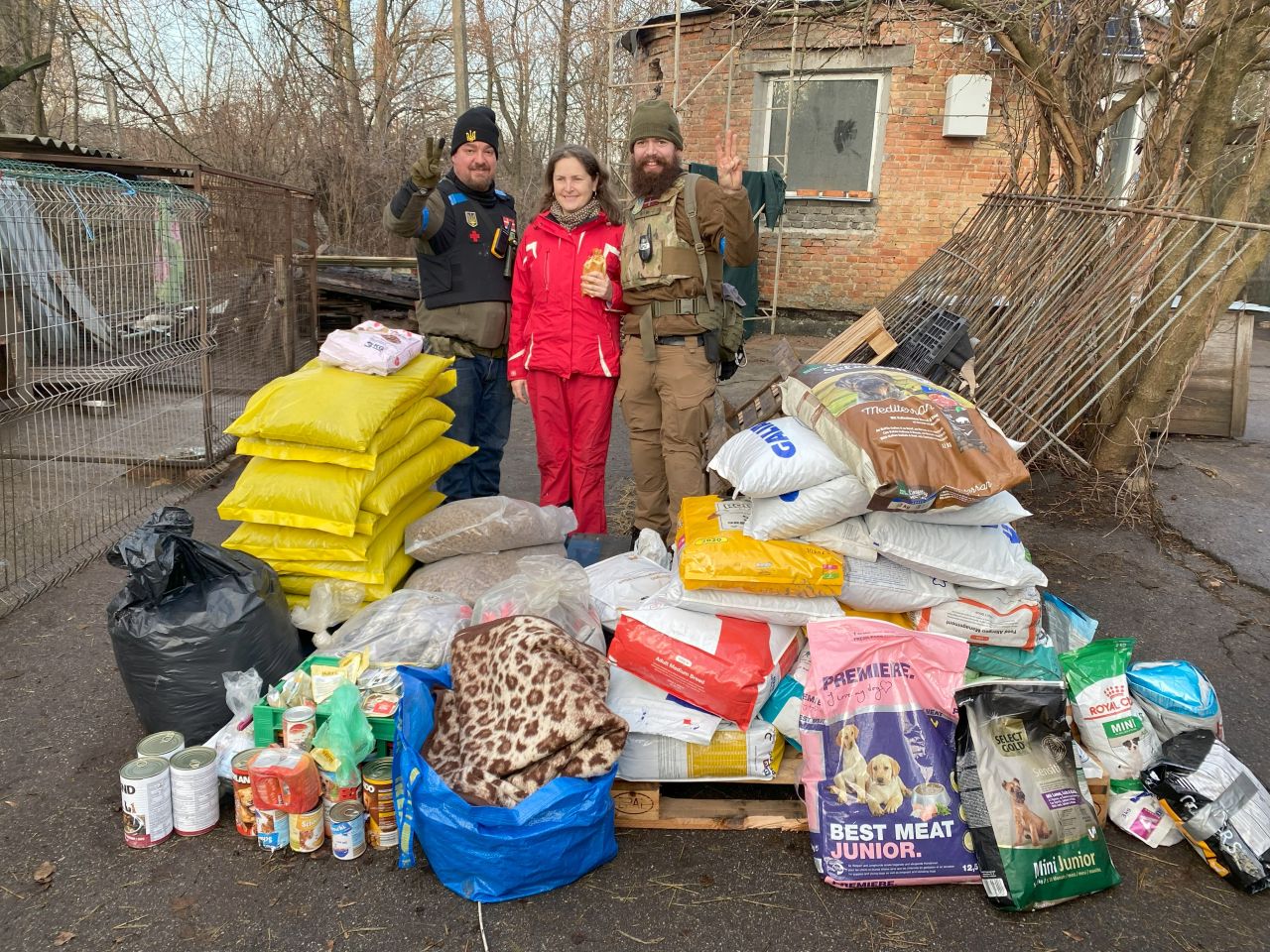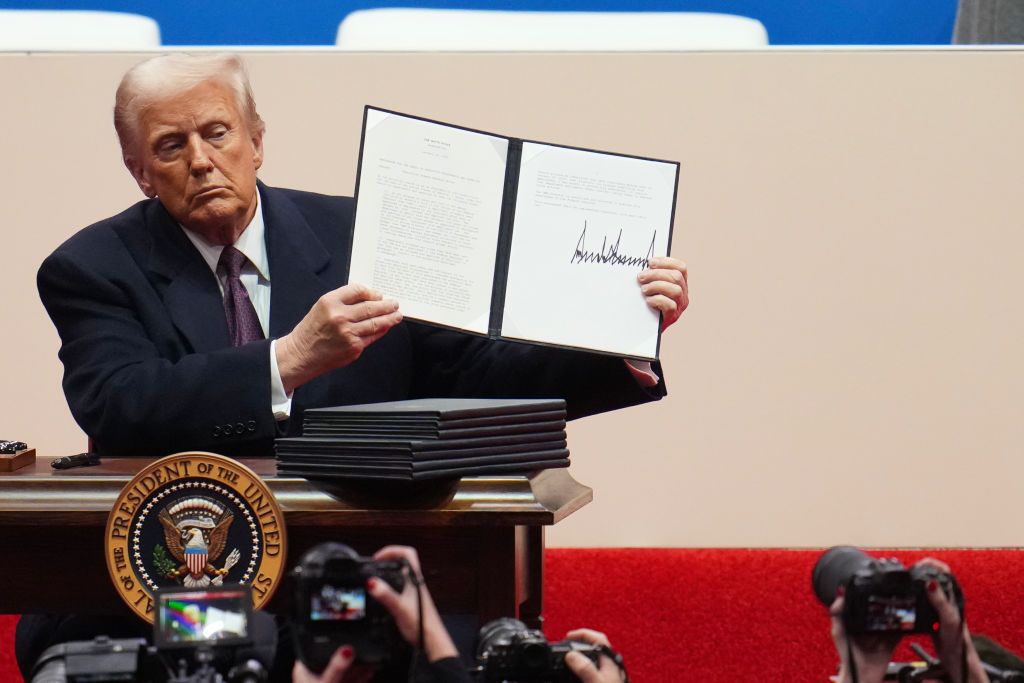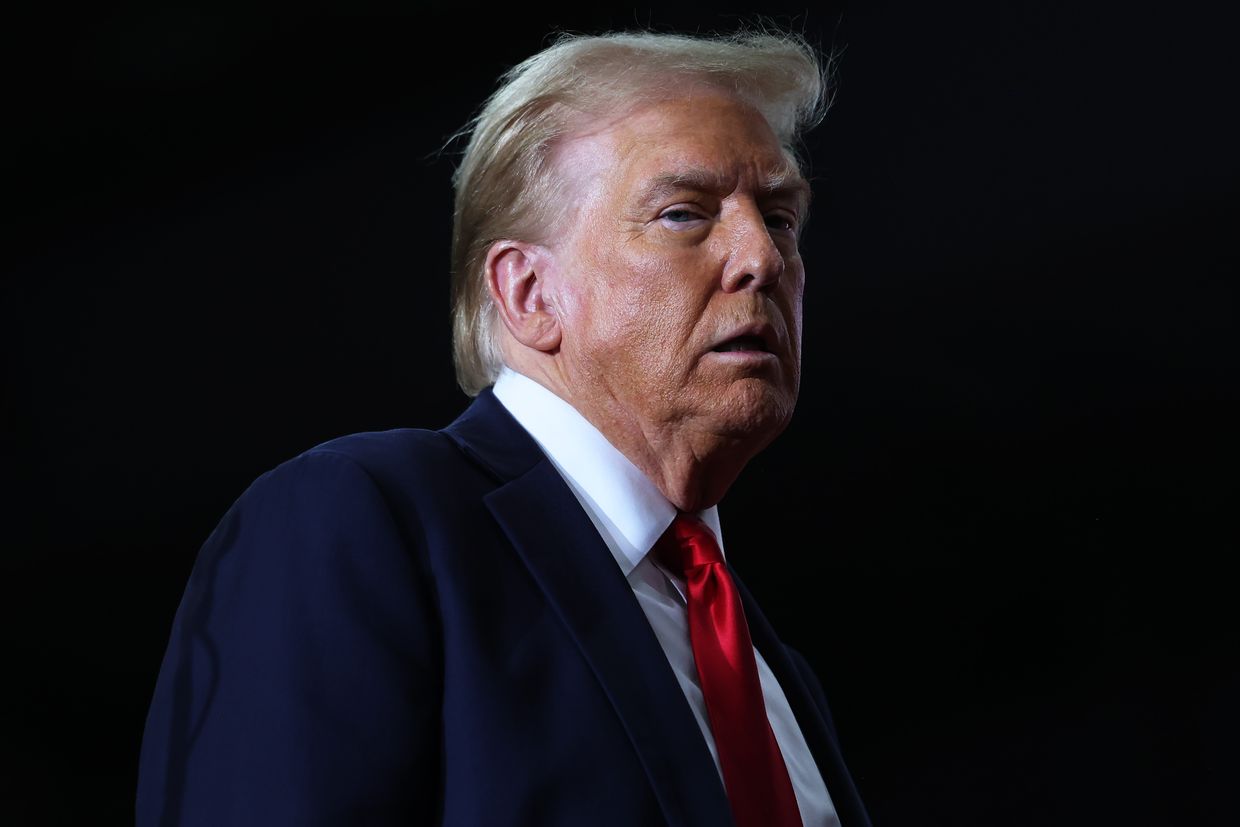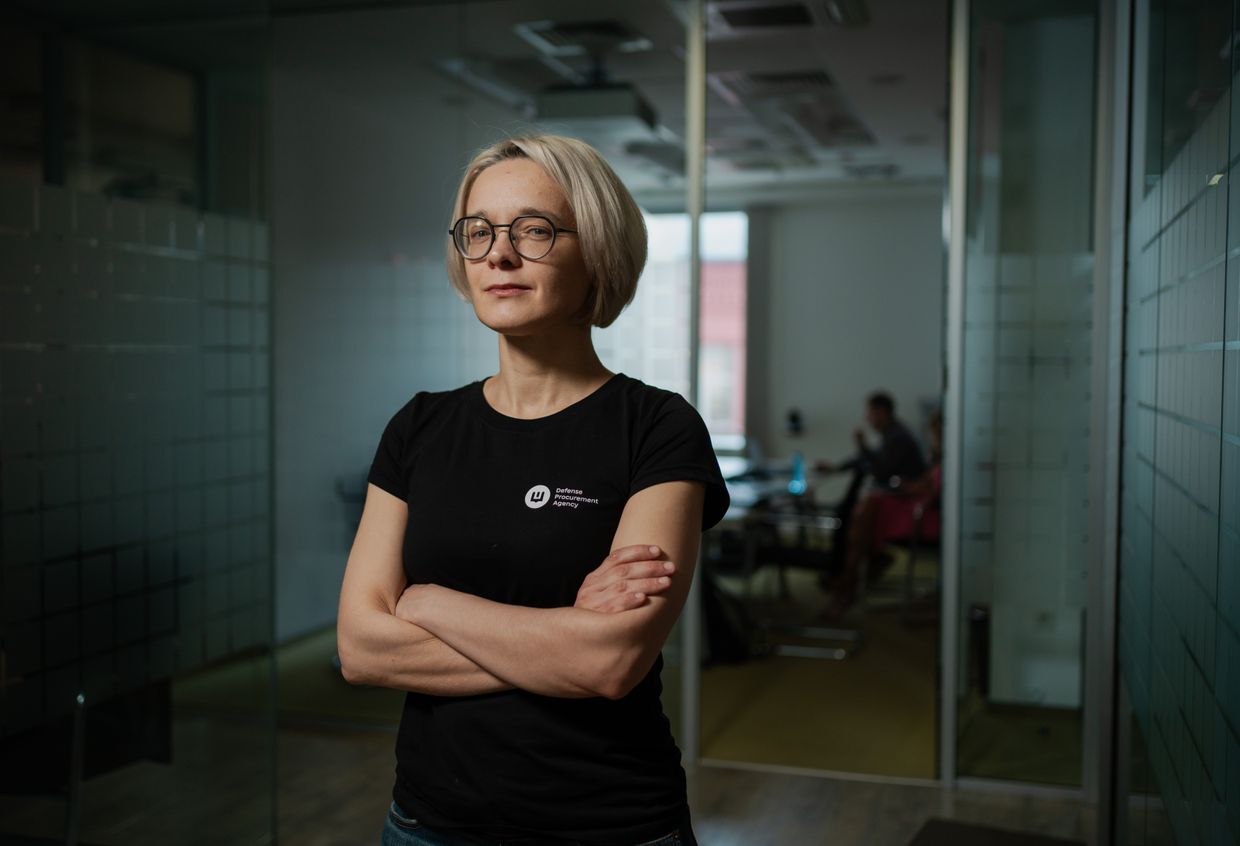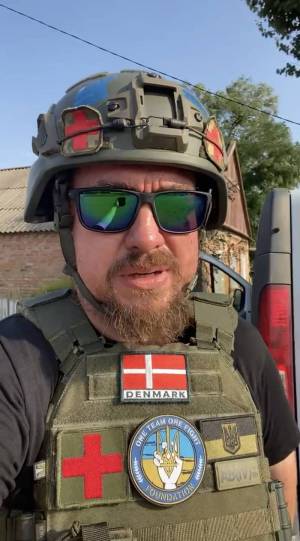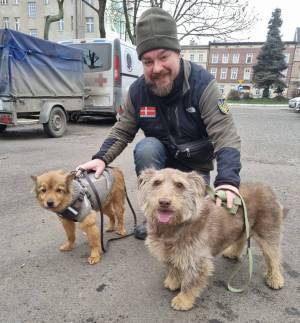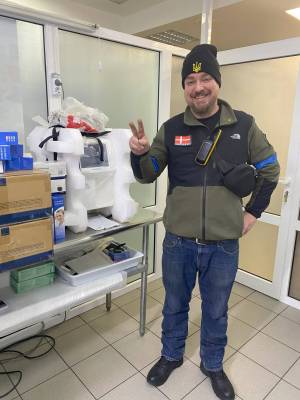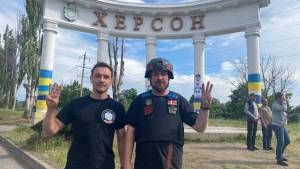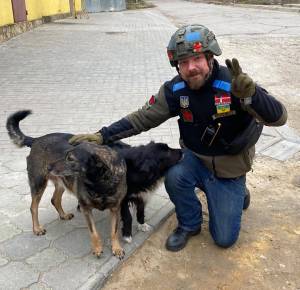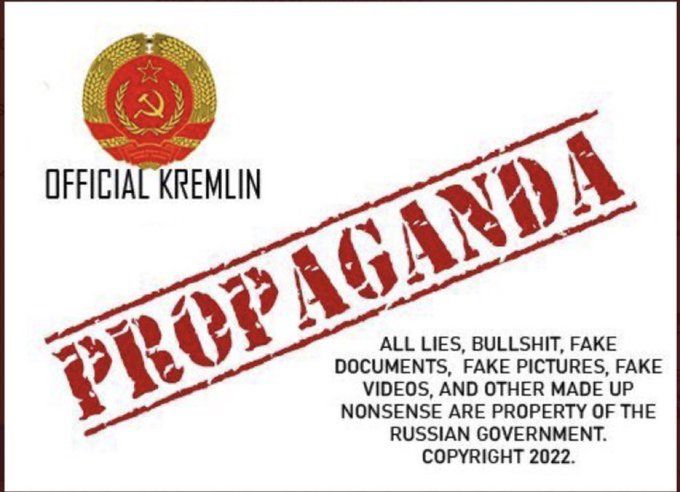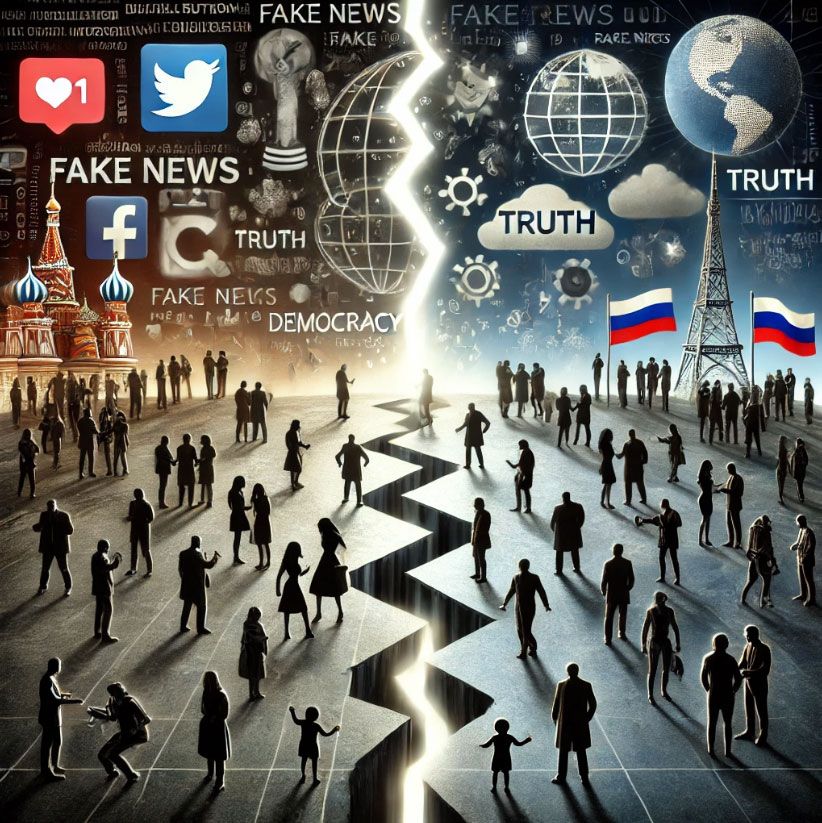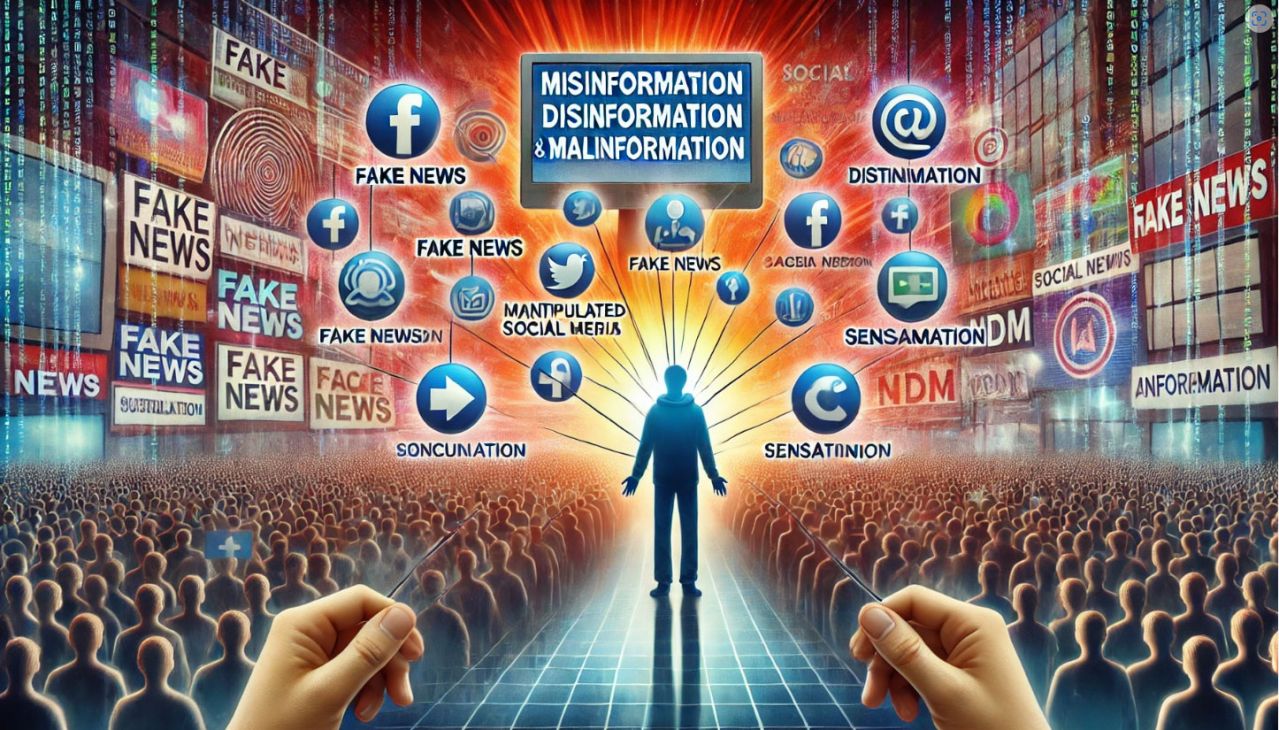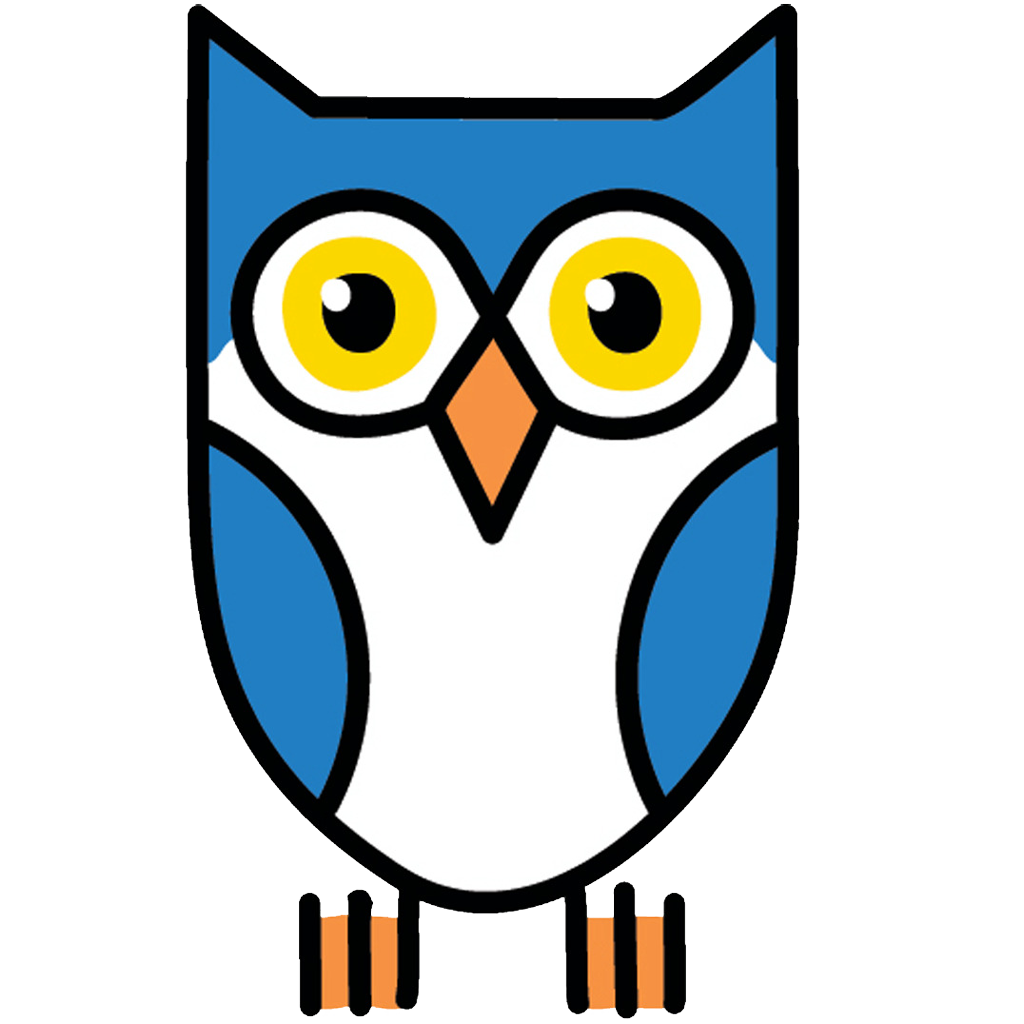Joel: ARU is a project under our NGO that is officially called “We Rescue”. Our motto is: We Rescue, protect and support the innocent. We are a humanitarian organization that provides aid in Ukraine and we are specialized in animal aid and animal rescue. We also do a lot of humanitarian projects for children, medical aid for hospitals and we do projects for the military. There we provide IFAKs for soldiers, supplies for medics, surgical equipment for stabilization points. We provided e.g. ultrasound machines for hospitals as well, but we are mostly working with animals.
We bring animal food from Denmark to Ukraine, we evacuate animals from the front line and we transport animals out of Ukraine. We have a big focus on supporting veterinarians, because they have a hard time in the warzone. We do a lot of grassroot support – when we get aid we pass it to Ukrainian NGOs, because they now better were things are needed.
So you are also working as kind of a distribution hub for Ukrainian volunteers and NGOs?
J: Yes, we are kind of a middleman in many cases and also work as middleman between Danish and Ukrainian NGOs, because we have people on the ground in Ukraine all the time. So when someone in Denmark wants to send humanitarian aid, we find the receivers or do the distribution, because we have a big network here. From parliament members to homeless people – all kinds of people in Ukraine have animals, so you get a really wide network, when you work with animals. Ukrainian organizations can also request things through us, if they need something specific. One example is the Wildlife Rescue Center from Natalia Popova. They rescue wildlife, zoo animals, bears, whatever you can imagine and they have the only clinic for large wildlife in Ukraine. They can send us lists of things they need, we then search for these things in our network. When we get them we organize the transport and distribution.
How many people currently work with you?
J: That’s a difficult question. We are a 100% volunteer organization. Nobody in our organization ever received a single dollar in salary. Some people might work very intensively for a couple of months and then have a break for a longer time. It's depending on their private life and other circumstances. We are two people that dedicated 100% of our time to ARU, but we consider 25-30 people as volunteers working with us. Some of them are Ukrainian, some are international. We also have a small branch in the Netherlands with our Dutch connection Ramon running things for us there.
Considering that you are a 100% volunteer organization, that’s a lot of people.
Why did you start with volunteer work? Did you do something comparable before?
J: It’s a long story, but I’ll try to make it short. I've been a full-time volunteer since the 27th of February 2022. At that time I didn’t plan to become a full-time volunteer, but I wanted to help out for a couple of days. I had my own business, had 2 days off and wanted to drive towards the border, but at this time there were too many volunteers, returning with empty cars. But on Facebook there were a lot of people from Ukraine with questions about immigration. I decided to help them connect with authorities, transporters and translated for them. On one occasion I posted my WhatsApp contact in a threat. After that my phone simply exploded. It rang 24/7. So after my 2 days off I took another day, and another, and another until I decided to be a volunteer full-time. I saw that I could use my organizational skills I had from leading my companies to support the volunteer community. That’s when I started matching drivers and refugees. Later I started doing marketing and booking for buses. We simply promoted the buses like a concert, as I used to be a concert organiser. We did posters and spread it via social media – with great success. Even bigger than planned. We were able to connect with a volunteer from Ukraine who went to Denmark and set up a small call center. But it was also too much work for us two. So I build an online platform and app to handle seat reservations on the buses.
In the first week we evacuated 997 people, in the first month 2500 people, in total more than 5000 people and more than 1000 animals. Our call center grew to around 30 people at that time. Already with the first bus a lot of people with animals wanted to board and we told the bus drivers to let them in.
But why animals? The first time I went across the border to Ukraine myself, I was shocked. I saw all these animals suffering. I never had pets , but when I saw all the misery it hit me in the heart. At a volunteer camp I met Patrick Westrup (co-founder of ARU) and other, former Danish soldiers, that volunteered for a Polish animal protection group. I helped these guys to fundraise for a van and did some back-office stuff. That’s when we came up with the name Animal Rescue Ukraine. Later on I went together with Patrick on tours and we created some infrastructure. And here we are - I officially immigrated to Ukraine and will stay until victory. Maybe even longer.
Can you tell us where in Ukraine you are operating?
J: We have been operating in all areas of Ukraine which are not under occupation. We have a base in Kiev region, where we have two warehouses and our office/housing. Of course we cannot share the exact location for safety reasons. We have been all along the frontline: Kherson, Dnipro, Donetsk, Kharkiv, Mykolaiv, Odessa, Zaporizhia - you name it. We go where help is needed. When we have to transport big things or evacuate someone, of course we drive ourselves, but we also often send help per post because it is fast and cheap.
How does a typical day in your life look like?
J: You never know what happens. Sometimes the phone rings and ten seconds later you are on the way to the front line. At the moment I am also helping to build an online platform to help crowdfunding for the army. That’s not related to animals but also important. I spend a lot of my days in the office, coordinating aid. But I also already drove around 150.000km in the last years. In general we drive around a lot. So every day is different.
What are the main problems you are facing at the moment as an NGO?
J: That’s a hard question. At the moment it would be finances. Crowdfunding gets harder and harder. A lot of time runs into creating content for fundraisers to help with this situation, but even fundraisers are hard to close at the moment. If it wasn’t for the fellas of NAFO we would probably be closed down already. Ironically the problem with animals isn’t that severe anymore, but simply because a lot just froze to death during the last, hard winter.
Animal food is also always needed here. In Denmark some rules changed, which made it much more difficult to donate food to Ukraine, so we need to buy more food locally. Also a lot of shelters are full and also out of money. Often they can only take animals in, if we provide the food. So money is the main issue, not only for us but also for a lot of other NGOs.
As someone who has never been in an active warzone, I cannot imagine what you have seen. Can you maybe share a story that sticks with you?
J: You see horrible things here. I want to say that what you see on TV is not the whole truth. Not because they are lying, but they filter out the worst parts, because normal people often can’t handle it. I saw a lot of things that I wish I didn’t. You have to keep in mind that we as volunteers were not prepared for what we would see. If you work for a professional organization you get help to handle the situation. But I want to share 2 stories with you:
In my early days of volunteering I got a message from a woman on Facebook. She said: “My son is dying, please help me!” Her son had diabetes and didn’t get his medicine for a long time. He was even partly unconscious. It turned out that the woman was already in Poland, so I explained to her that she can go to an emergency room where her son will get the insulin he needs. After the longest 2 minutes of my life she replied: “I was able to stop a man on the street, we are now in a car on the way to the hospital. Thank you for saving my son’s life.” I think this is a good example of the panic and confusion of the people fleeing from a war.
So the second story: In December 2022 we were on a trip to deliver aid. Our first stop was outside of Kiev where we delivered a generator and horse food to 2 teenagers that stayed back at home with their animals, while the rest of their family fled to Turkey. On the way there our tire of the trailer exploded shortly before curfew. We put out our safety vests and hoped for help. Less than 2 minutes later a guy stopped, called his friend. They dismantled the tire and came back 20mins later with a new one. So less than 45 minutes after we noticed the damaged tire, we were back on the road again. At that time we did a project with solar cells for soldiers and we gave him one of these. It turned out he was a soldier stationed in Donbas, and with this solar cell he was able to call his family every day. That left a big impression on me. It was actually the 23rd of December and we were wearing Christmas hats and Santa suits. Our next stop was to drop off humanitarian aid when we suddenly saw a flashlight waving at us. We stopped but there was nobody coming towards us. After some minutes I got out of the car, because we thought someone might need help. It was then when I saw a soldier who was clearly panicking. He shouted at me to get down on my knees and pointed his machine gun at me. So there I was in the middle of Ukraine, on my knees, hands behind my head, wearing a Santa suit and hat on Christmas eve, with a gun pointed at my head. It was absurd. I shouted at Patrick, who was with me to bring our documents to convince the soldier that we were volunteers and here to help. The soldier started panicking even more and loaded his gun. I could hear the bullet entering the chamber. I closed my eyes and started praying. Luckily the Police arrived and one of the guys spoke English. We were allowed to carry on and deliver the aid. We even brought some dog food to their checkpoint, because a dog sought shelter with the police officers there.
I could tell you hundreds of other stories of rockets flying over our heads, evacuating aggressive dogs under artillery fire, bombs exploding so close that they almost wipe you off your feet, but for these stories are stuck with me for now.
Thank you for sharing for these stories, Joel.
When talking about your work you mentioned that you often work together with other volunteers and organizations. Are there some that you would like to highlight?
J: We are working closely together with the Wildlife Rescue Center of Natalia Popova near Kiev, SVORA is our main partner in Kharkiv. Also Petro & Mazepa who help us a lot finding shelters and distribute aid. In Odessa we are supporting Odessa Cat Crew and various veterinarians. We are also official partners of Mykolaiv City council and work with the Mykolaiv animal protection program. We also have our own feed program in Bucha and Irpin. One of our Ukrainian volunteers, Nikita, has been running this feed program for us since May 2022. We support pensioners and underprivileged animal owners. Also private independent shelters, who are not receiving aid from anyone else then us.
What motivates you and keeps you going?
J: I also volunteer for One Team One Fight Foundation supporting the military, because this is a very important task at the moment. It motivates me to stop Russia and to make sure they won’t come to my home country one day. Because when they win in Ukraine, they will send all the Ukrainian men into a meat grinder against Europe. Protecting my own family and my own country is one of my main motivations. And to stop Russian terrorism. I’ve seen horrifying things on the front line. When you've seen such things, it's hard to walk away. Actually, impossible for me! We have to stop it. It may seem that helping animals isn’t part of the war effort, but it is important. It helps the soldiers. If they know that there are humanitarian organizations helping their families it motivates them. Actually many dog evacuations from the front line are requested directly by soldiers, because the animals seek shelter with them and the soldiers even share their food with them. So when we help rescuing animals we free resources from the army as well.
NAFO is also a motivating factor for me. To know that the fellas out there have our back, really keeps me going. It is probably the most motivating factor at the moment. NAFO is by far the biggest contributor to ARUs work. Maybe not by donations, but all the retweets, boosts and likes help us to collect donations.
Is there anything else you want to tell our readers?
J: I want to finish by talking a little bit about NAFO. NAFO is one of the main reasons ARU still exists today. Without NAFO support, we would not be in Ukraine today. I want all the fellas out there to know, that what they are doing is very important work. We need people that stay at home and keep bonking. I want you to know, that NAFO is recognized here in Ukraine as a major factor. I speak to Ukrainian soldiers and commanders and they mention NAFO as one of the biggest factors helping them. Because your help arrives rapidly. It doesn’t need 6-12 months like all the military help packages. NAFO supplies good quality equipment, fast and it’s making a huge difference on the front line. The soldiers know it, the commanders know it and even President Zelensky, he also knows what NAFO is and recognizes it as a huge factor in this war. So on behalf of Ukrainian people and especially on behalf of ARU, I want to thank all fellas of NAFO for keeping us alive. For keeping Ukrainians alive and for saving lives on the front line every single day. Slava NAFO!!
Thank you for these powerful words and also sharing your personal stories.
Further links


